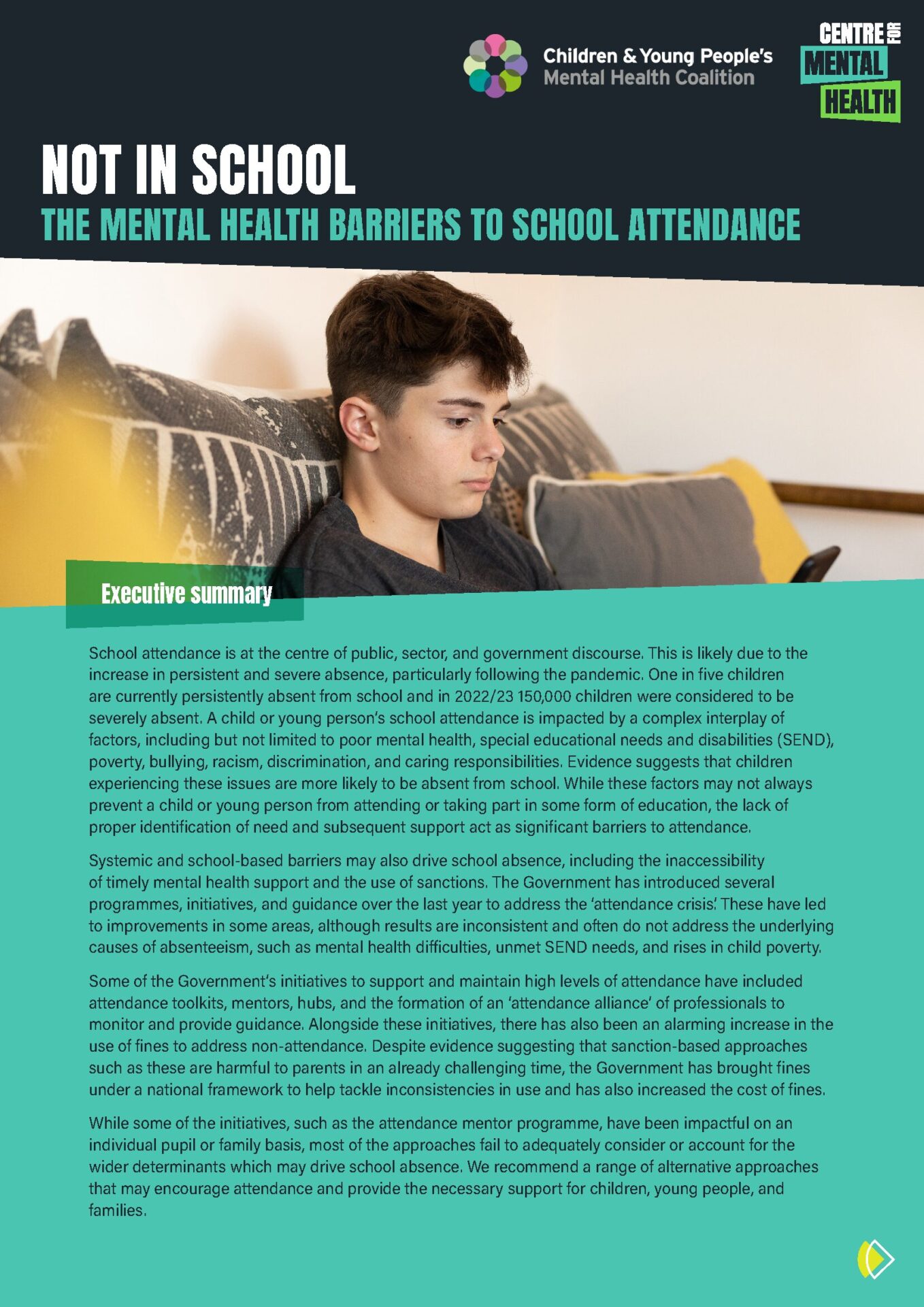The mental health barriers to school attendance
Bethan Bottomley and Zainab Shafan-Azhar
Rates of school absence have risen significantly since the pandemic. One in five children is persistently absent from school, and 150,000 children missed over half of their school sessions last year. Though improving attendance has become a key government objective, its approach to doing so tends to overlook the issues which are driving this increase in absenteeism.
This briefing finds that school absences are rising amidst escalating rates of mental health problems among children and young people, with long waiting lists and rejected referrals preventing them from engaging fully with education. Absences have spiked alongside rates of child poverty, where families struggling with the cost of living may be unable to afford the basics for their children to attend school, such as school uniform, transport or food. The briefing also finds that pupils with special educational needs and disabilities (SEND) are much more likely to miss school, exacerbated by long waits for diagnosis and a lack of support to meet their needs.
While the Government has introduced several measures to address the problem, these have so far been ineffective. Worryingly, the Government has said it will increase parental fines, despite evidence that sanctions put additional strain on families’ wellbeing.
Not in school highlights the need to address the underlying causes of school absence. By increasing the availability of mental health support both in schools and the community, improving access to SEND diagnoses and support, and reducing the use of sanctions-based approaches, the Government can boost attendance and support children to learn.






